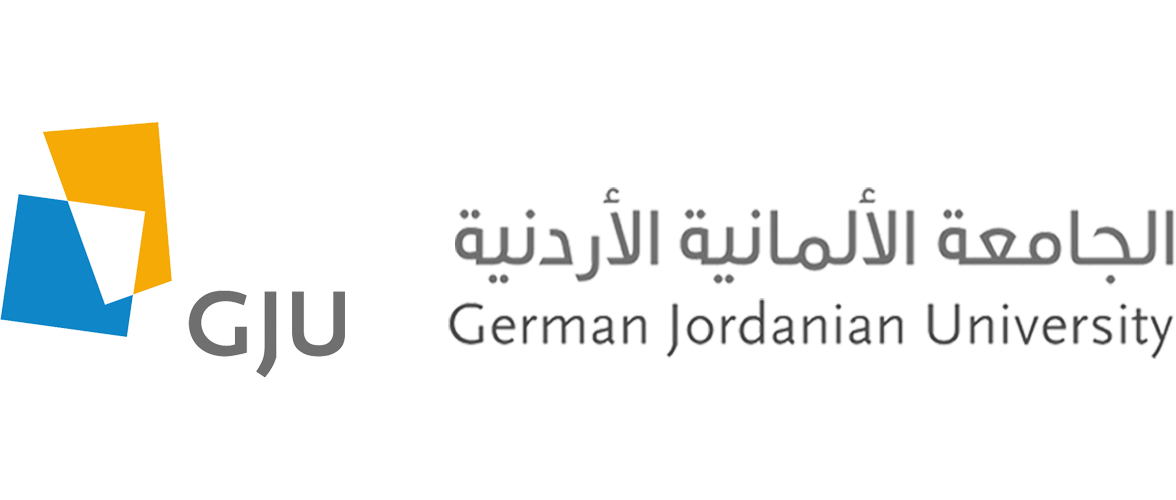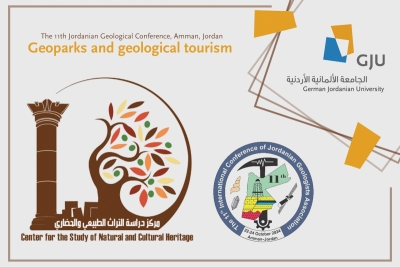The 11th Jordanian Geological Conference, Amman, Jordan
Date: October 22-24, 2024.
Location: Amman, Jordan
Session: “Geoparks and geological tourism”.
Call for Abstracts
Introduction
As a part of the upcoming conference organized by the Jordanian Geologists Association, a session will be organized by the Center for the Study of Natural and Cultural Heritage on the campus of GJU. This session will be under the theme of “Geoparks and geological tourism”. The conference will be held from October 22-24, 2024.
In recent years several efforts around the world have started to focus on promoting geoheritage. These efforts were crowned by registering 195 sites from 48 countries, of which some are transboundary sites. The Arab region contains several unique geological features that include breathtaking landscapes that attract adventure tourism and showcase unique geo and biodiversity. Some of these geological sites have been placed on the UNESCO world heritage list as mixed sites (Natural and Cultural Heritage), such as Wadi Rum Jordan, or as a natural outstanding landscape site such as Wadi al-Hitan in Egypt. While the UNESCO World Heritage List has several natural landscape sites inscribed, only Morocco has a site inscribed on the UNESCO Global Geopark list, which is the M’Goun geopark. As a contrast, Germany has 16 geoparks. Thus, it is important to learn from other countries’ experience, without falling into the trap of registration obsession.
Although the awareness towards the geoheritage in the Arab countries is not new, efforts towards its protection vary. While Tunisia is in the process of passing a law on the Valuation and Protection of Geological Heritage, Jordan has only recently established a national committee for geoparks following the approval of the bylaw on geological reserves and geoparks. While Tunisia is recently working on creating a database for its geological features, a database for southeastern Arabia has been developed.
Unlike cultural heritage, which can be easily detected and understood, geoheritage is more subtle, making it very vulnerable to damage, from mining for natural resources, urban encroachment, expanding development into remote areas, neglect, and pollution and even tourism are just some of the hazards facing this heritage. In addition to the lack of awareness on all levels of its importance.
Several national, regional and international institutions have started to increase their efforts towards valorizing and protection of geoheritage in the Arab region. Although all these efforts are indeed welcomed, they can still be considered as shy, low-key efforts that sometimes hamper each other. Even within single countries, several entities, both governmental and private, can be working separately on the same goals without knowing of the other’s efforts and results. In this global world, it is important to learn from other countries’ experiences, build a network and work on promoting this unique heritage that tells the story of our planet Earth.
Main topics:
The main topics to be covered in this session include:
- Laws for protection of geo-heritage on international, national levels.
- Databases and other methods for recording and classification of the geo-heritage.
- Geoparks management
- Geotourism
- Geological museums
- Geopark potentials and challenges.
- Any other related issue.
Experts in this field are invited to attend and participate. For more information and for submitting your abstract, please contact Professor Nizar Abu-Jaber (nizar.abujaber@gju.edu.jo) by August 1st, 2024.


